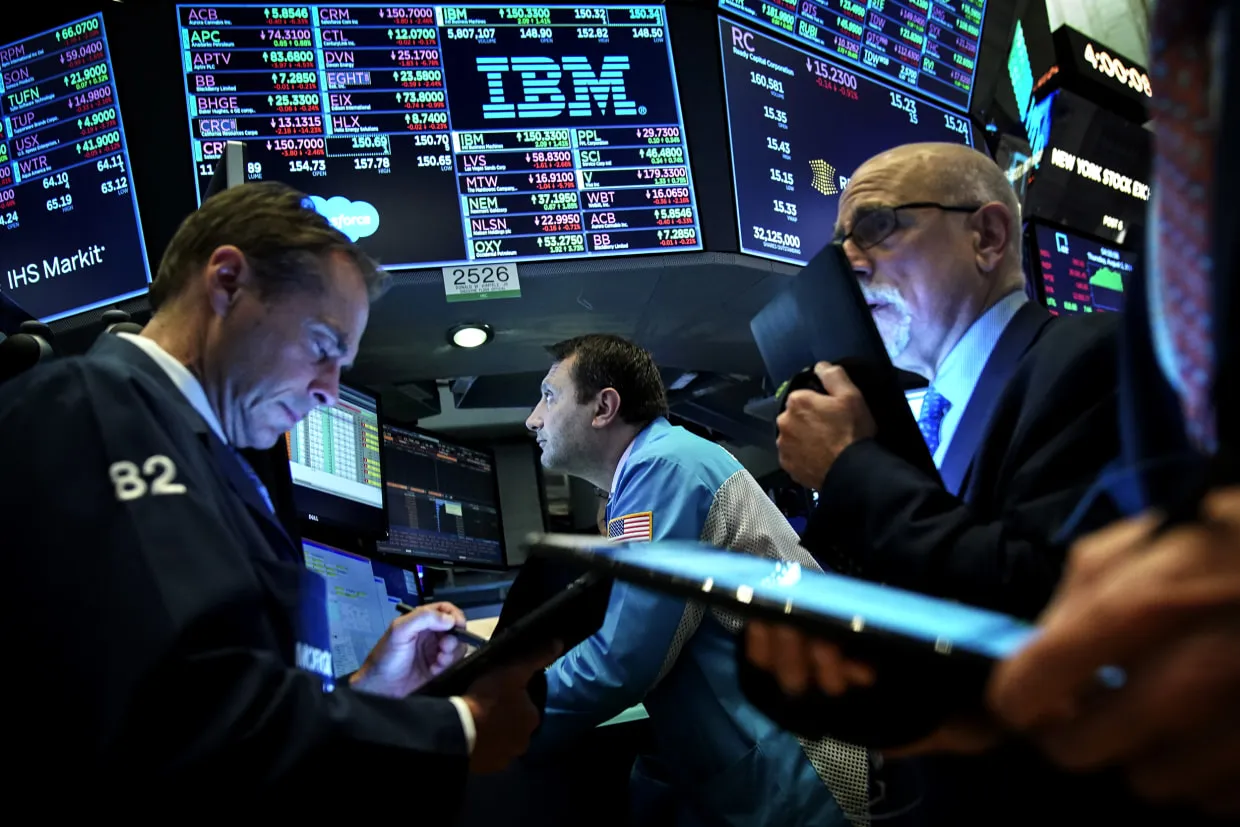Tech giants preparing to raise hundreds of billions of dollars to fund artificial intelligence expansion are prompting lenders and investors to take new steps to shield themselves in case the momentum stalls. As companies ramp up borrowing to finance massive data-center buildouts and cloud infrastructure, Wall Street is increasingly turning to credit derivatives to offset the growing risk tied to these “hyperscalers.”
Banks and asset managers are leaning more heavily on instruments that pay out if a major tech borrower defaults. That shift has already pushed up the price of credit protection linked to Oracle Corp.’s debt, with the cost of its credit derivatives more than doubling since September.
Trading activity has surged as well: credit default swap volumes tied to Oracle reached roughly $4.2 billion in the six weeks through Nov. 7, according to Barclays Plc credit strategist Jigar Patel. A year earlier, that figure was under $200 million.
“We’re seeing renewed interest from clients in single-name CDS discussions, which had faded over the past few years,” said John Servidea, global co-head of investment-grade finance at JPMorgan Chase & Co.
He added that while hyperscalers carry strong credit ratings, their borrowing needs have ballooned, driving more conversations about hedging potential downside risks. Oracle declined to comment.
Although derivatives trading still represents only a sliver of the massive debt wave expected ahead, the uptick highlights how profoundly tech companies are reshaping global capital markets as they race to dominate the AI economy.
JPMorgan strategists estimate that investment-grade borrowers could issue as much as $1.5 trillion in bonds over the next few years. A flood of AI-related issuance is already underway: Meta Platforms Inc. sold $30 billion of debt in late October the largest corporate bond deal of the year in the U.S. while Oracle tapped markets for $18 billion back in September.
According to a recent JPMorgan report, tech companies, utilities, and other AI-linked issuers now make up the biggest share of the investment-grade universe, surpassing banks for the first time. And it isn’t just blue-chip names preparing to borrow; high-yield and leveraged loan markets are also bracing for an upswing, fueled by the need to fund thousands of new data centers around the world.
Traders say banks have become some of the most active buyers of single-name credit default swaps tied to tech borrowers. Their exposure to the sector has increased sharply in recent months, prompting them to use CDS more frequently as a protective hedge. Another group driving demand is equity investors, who see credit derivatives as a relatively inexpensive way to guard against volatility in tech stocks. In several cases, credit hedges offer more favorable pricing than comparable equity options.
Take Oracle as an example: purchasing five-year protection against a default cost around 1.03 percentage points as of Friday, according to ICE Data Services. That translates to roughly $103,000 per year for every $10 million of insured bond value. By comparison, buying a put option betting that Oracle’s shares will fall nearly 20% by the end of next year would cost around $2,196 per 100 shares close to 10% of the value being hedged.
While credit derivatives remain a small piece of the broader market, analysts say the growing appetite for protection is an early sign of how investors are recalibrating risk in the age of AI. As hyperscalers accelerate borrowing to support unprecedented data-center expansion, demand for hedging tools is expected to rise alongside them. For investors, the message is clear: even as tech leads the next wave of economic growth, the scale of the sector’s debt buildup is too large to ignore.

Subscribe to our newsletter!
As a leading independent research provider, TradeAlgo keeps you connected from anywhere.








